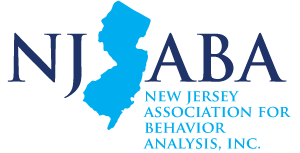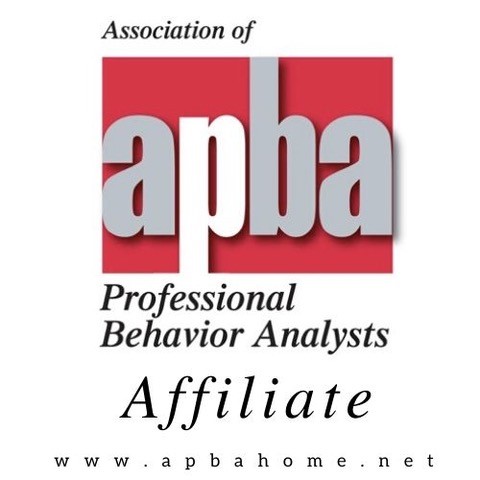Within this section, you can expect to find:
Introduction to Behavior Analysis
As you can read below, behavior analysis is a scientific discipline that offers great potential to improve human behavior. Throughout our website, you’ll see many of the elements mentioned below come to life through research, education, service delivery, and advocacy. If you have any questions about behavior analysis, please feel free to contact us. We’re here to help!
The Association of Professional Behavior Analysts wrote the following text, and it is copied here with permission.
Behavior analysis is a scientific discipline whose subject matter is individual behavior interacting with environmental events. It has theoretical, experimental, and applied branches; distinct research methods, scientific journals, textbooks, scholarly and professional organizations, and university training programs; and professional and paraprofessional practitioner standards and credentials. The applied branch of the discipline (applied behavior analysis; ABA) involves using scientific principles and procedures discovered through basic and applied research to improve socially significant behavior to a meaningful degree. Thousands of studies published in peer-reviewed scientific journals have demonstrated the efficacy of many ABA procedures – singly and in various combinations — for building skills and reducing problem behaviors in many clinical and non-clinical populations in a wide range of settings.
The practice of behavior analysis is a profession and requires specialized training. For regulatory purposes, that practice is defined as the design, implementation, and evaluation of instructional and environmental modifications by a behavior analyst to produce socially significant improvements in human behavior. It includes the empirical identification of functional relations between behavior and environmental factors, known as functional assessment and analysis. Applied behavior analysis interventions are based on scientific research and the direct observation and measurement of behavior and environment. They utilize contextual factors, establishing operations, antecedent stimuli, positive reinforcement, and other consequences to help people develop new behaviors, increase or decrease existing behaviors, and emit behaviors under specific environmental conditions.
Well-established, accredited credentialing programs for practitioners of ABA are managed by the nonprofit Behavior Analyst Certification Board (BACB; www.bacb.com). Results of extensive job analysis studies conducted by the BACB, together with case law and best practices in professional credentialing, have served as the basis for the competencies, degrees, coursework, supervised experience, and professional examinations required to obtain BACB credentials. The requirements parallel those of many other professions. The BACB credentials are recognized in many laws and regulations as qualifications for practicing ABA.
Areas in which ABA interventions have proved effective include general and special education (all levels); autism spectrum disorders, intellectual and developmental disabilities, attention deficit disorder, movement disorders, brain injuries and diseases, behavior disorders, substance abuse disorders, dementia, and feeding disorders; home and workplace safety; vehicular and pedestrian safety; organizational behavior management; animal welfare and training; conservation; parenting; child welfare; sports; and health and fitness. ABA services are delivered in a variety of settings, including private and public clinics, private homes, hospitals, schools, nursing homes, group homes, universities, and workplaces.
Resources to Learn about ABA
History
The New Jersey Association for Behavior Analysis (NJABA), an affiliated chapter of the Association for Behavior Analysis, International (ABAI) and an affiliate of the Association of Professional Behavior Analysts (APBA), was founded to promote the discipline of behavior analysis in New Jersey. Our first development meeting was held in 2003 at Rutgers, Douglas Developmental Disabilities Center. Since that time, NJABA became incorporated, earned tax exempt status, elected officers, developed this website, completed a number of newsletter issues, exceeded the 300-member mark (thank you to all members!), and held successful annual conferences and professional workshop days throughout the year.
Diversity Policy
NJABA Diversity Policy
The New Jersey Association for Behavior Analysis (NJABA) proudly adopts the Diversity Policy of the Association for Behavior Analysis International (ABAI) and affirms our commitment to fostering a diverse, equitable, and inclusive community within the field of behavior analysis.
ABAI Diversity Policy
The Association for Behavior Analysis International encourages diversity, equity, and inclusion in the field of behavior analysis broadly, and within the organization specifically. Diversity refers to differences in race, ethnicity, sexual orientation, gender identity, age, country of origin, religious or spiritual beliefs, ability, and socioeconomic class.
It is expected that all ABAI members, as well as non-members who participate in ABAI events, treat one another with respect.
Bylaws
Expected of all nonprofits, bylaws raise the level of accountability, transparency, and effectiveness to foster excellence in service and inspire trust. Our bylaws include rules and procedures such as elections, roles, membership, and meetings.
– last updated September 19, 2023 NJABA Bylaws






